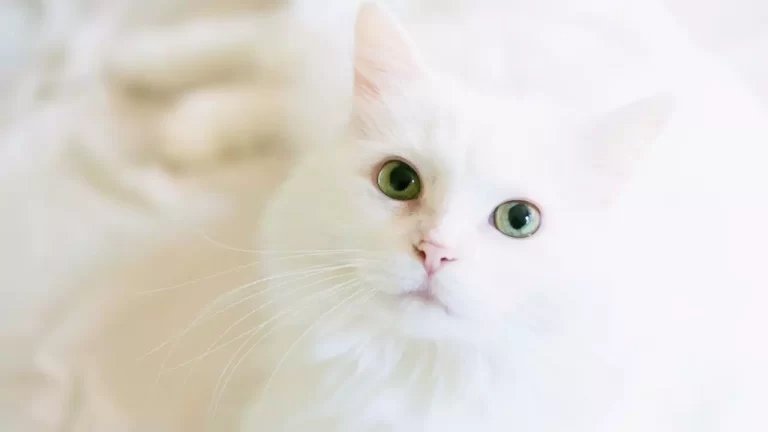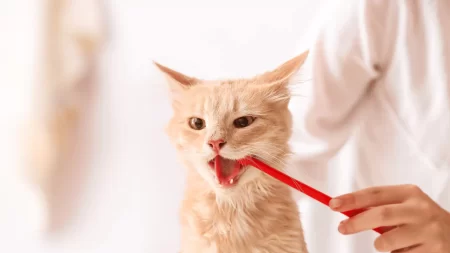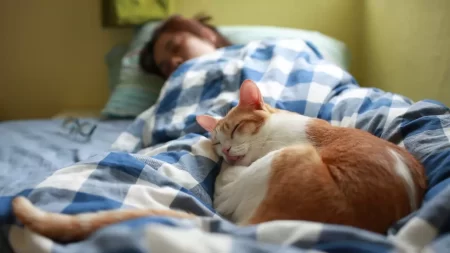Do you have a furry feline friend at home? If so, you might wonder how long your cat will live and what you can do to help them stay healthy and happy.
The answer to this question is not simple, as there are many factors that can affect a cat’s lifespan.
However, in general, most cats live 13-17 years, and some can even live longer than 20 years.
In this article, we will explore the average lifespan of cats and the factors that influence it. We will also give you some tips on how to help your cat live longer.
Average Lifespan of Cats
The average lifespan of a cat is influenced by many factors, such as their breed, diet, health, and lifestyle. Some breeds of cats are known to live longer than others, such as the Siamese and Manx breeds. However, both purebred and mixed-breed cats have the potential to surpass the average lifespan of the species.
The average lifespan of a cat also depends on whether they are spayed or neutered. Spaying or neutering your cat can prevent unwanted pregnancies and reduce the risk of certain diseases, such as uterine infections, breast cancer, testicular cancer, and prostate problems. Spaying or neutering your cat can also reduce their tendency to roam and fight with other cats, which can expose them to injuries and infections.
Factors That Affect a Cat’s Lifespan
There are many factors that can affect how long your cat will live. Some of these factors are beyond your control, such as your cat’s genetics and age. However, some factors are within your control, such as your cat’s diet, healthcare, and lifestyle. Let’s take a look at some of these factors in more detail.
Diet and Nutrition
Cats are obligate carnivores, which means they need meat to survive. They require a high amount of protein and essential amino acids, such as taurine, methionine, and cystine. These nutrients are vital for your cat’s health and well-being.
However, not all cat foods are created equal. Some cat foods may contain too much carbohydrates or lactose, which can harm your cat’s digestion and protein absorption. Some cat foods may also lack the necessary vitamins and minerals that your cat needs.
Therefore, it is important to choose a high-quality cat food that meets your cat’s nutritional needs. You should also avoid feeding your cat human food or table scraps, as these may contain ingredients that are toxic or harmful to your cat. Some examples of these ingredients are chocolate, onions, garlic, grapes, raisins, alcohol, caffeine, and xylitol.
Healthcare
Another factor that can affect your cat’s lifespan is their healthcare. Cats can suffer from various diseases and parasites that can compromise their health and shorten their lifespan. Some of these diseases and parasites are preventable or treatable with proper veterinary care.
For example, cats can be vaccinated against diseases such as rabies, feline leukemia virus (FeLV), feline immunodeficiency virus (FIV), feline infectious peritonitis (FIP), feline panleukopenia (FPV), feline herpesvirus (FHV), feline calicivirus (FCV), and feline chlamydiosis (FC). Vaccinating your cat can protect them from these potentially fatal diseases.
Cats can also be treated for parasites such as fleas, ticks, worms, mites, and ear infections. Treating your cat for parasites can prevent them from suffering from itching, irritation, anemia, weight loss, diarrhea, vomiting, and other complications.
Indoor vs. Outdoor Lifestyle
Another factor that can affect your cat’s lifespan is whether they live indoors or outdoors. Indoor cats tend to live longer than outdoor cats because they are less exposed to dangers such as predators, cars, poisons, traps, diseases, parasites, and other cats.
However, indoor cats may also face some challenges that can affect their health and happiness. Indoor cats may suffer from boredom, stress, obesity, lack of exercise, and behavioral problems. Therefore, it is important to provide your indoor cat with a stimulating and enriching environment that meets their physical and mental needs.
Tips to Help Your Cat Live Longer
As a cat owner, you want to do everything you can to help your cat live longer. Here are some tips that can help you achieve this goal:
- Proper Nutrition: Feed your cat a high-quality cat food that meets their nutritional needs. Avoid feeding your cat human food or table scraps that may contain harmful ingredients. Provide your cat with fresh water at all times.
- Exercise: Encourage your cat to exercise regularly by providing them with toys, scratching posts, climbing structures, and interactive play sessions. Exercise can help your cat maintain a healthy weight, prevent obesity, and stimulate their mind and body.
- Regular Veterinary Care: Take your cat to the vet at least once a year for a routine check-up, vaccination, deworming, and parasite control. Also, take your cat to the vet as soon as you notice any signs of illness or injury. Early detection and treatment can make a big difference in your cat’s health and recovery.
- Spaying or Neutering: Spay or neuter your cat as soon as possible to prevent unwanted pregnancies and reduce the risk of certain diseases and behaviors. Spaying or neutering your cat can also help them live longer and happier.
- Indoor Lifestyle: Keep your cat indoors as much as possible to protect them from dangers such as predators, cars, poisons, traps, diseases, parasites, and other cats. If you want to let your cat outside, make sure they are supervised and have a safe and secure enclosure or harness.
- Love and Attention: Last but not least, give your cat plenty of love and attention. Cats are social animals that need human companionship and affection. Cuddle with your cat, talk to them, groom them, and praise them. A happy cat is a healthy cat.







